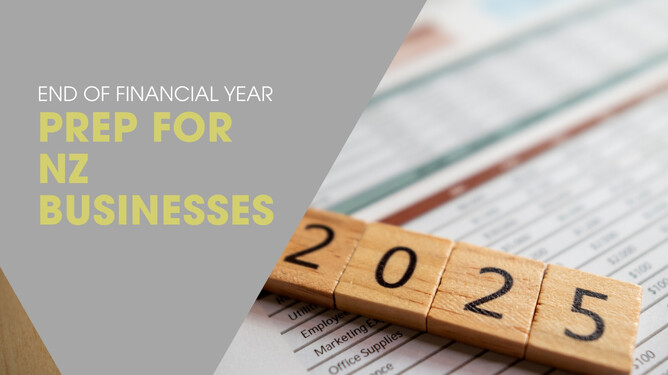The financial year-end (the End of Financial Year (EOFY) or end of tax year) is a busy time for New Zealand businesses. The New Zealand Financial Year is from 1 April to 31 March. Year-end is a time to get your books up to date and submit your tax returns to the Inland Revenue.
If you run a business, you need to file your income tax returns by 7 July each year for the financial year that ends on 31 March. That’s unless you have a substituted accounting period.
If you use a registered tax agent (a bookkeeper or accountant) you generally have 12 months to file your tax return. Bookkeepers and accountants can be granted an extension of time by The Commissioner. This allows us to spread the workload throughout the year, and why March is busy for bookkeepers and accountants. We have until 31 March of the following year to file your tax returns.
What Businesses Need to Know for FYE
There are several tasks that you as the business owner can complete throughout the year to help prepare for the financial year end.
By 31 March, your bookkeeper will need your financial information. This is so they can accurately file your tax returns, provide you with financial reports, and comply with legal requirements.
Some top tips for business owners when preparing for the financial year end include:
Make sure your financial records are in an easy-to-find place.
Know your tax deadlines.
Complete your payroll obligations.
Ensure all employee data is up to date.
Look back on the past year and plan for the financial year ahead.
What does my bookkeeper need for FYE?
For NZ business owners, keeping financial records is required for compliance. Providing this information to your bookkeeper or accountant on time allows them to work efficiently. Good financial records help you make informed business decisions. It’s good practice to keep a record of the following:
Bank Accounts
If you don’t use accounting software you will need to provide your bookkeeper with bank statements for your bank accounts for the financial year. We’ll need a record of your closing balance(s) for year-end.
Reconciling bank accounts is a key responsibility for a bookkeeper, and can be a time-consuming task.
This involves comparing your bank statements to your accounting records, noting any discrepancies, and adding or subtracting items to ensure they match.
Credit Cards
You can reconcile your credit cards in your accounting software or provide your bookkeeper with the statements. If you have used a personal credit card for business transactions throughout the year, it can be helpful to highlight these on statements.
Loans, Financial Agreements or Debts
If you’ve taken out any new investments, loans, or hire-purchase agreements during the year, you’ll need to provide statements for these. We also need details of any business funds or assets used or purchased privately. At year-end, we’ll require the closing balance for any outstanding loans.
Sales and Purchase Invoices
You’ll need to provide your bookkeeper with any sales and purchase invoices acquired throughout the year. This includes expense receipts for large purchases, legal or insurance expenses, and office expenses.
Provide your bookkeeper with details of all paid or unpaid invoices from sales or services provided. This is where accounting software can be a useful tool for generating invoices, keeping records, and preparing annual accounts.
Cash
Your bookkeeper will need to reconcile your petty cash receipts and cash balance for year-end. Cash transactions should be recorded in a cash book to accurately track income and expenses to comply with legal tax requirements.
Stock
If you’re a retail or manufacturing business, you’ll need to prepare a stocktake for 31 March. Stocktakes involve physically counting the items you have in stock. This is so we can compare the numbers on your balance sheet and ensure they match up to calculate taxable income and provide accurate financial data for audits and financial reporting.
Business Vehicle
Keep a record of any vehicles that are used for business in a logbook and record mileage throughout the year.
Payroll
If you’re a business has employees, staff payments must be reconciled like any other transaction. Payroll is often one of your biggest operating expenses. It requires the calculation of net pay, taxes, deductions and accurate reporting.
At the financial year end, you will need to verify employee details, calculate earnings and deductions, generate tax summaries (P60s), reconcile payroll data, and submit payroll reports to IRD.
How Can a Bookkeeper Help?
Bookkeeping is about accuracy. But a good bookkeeper goes beyond crunching numbers. They act as a trusted advisor, offering insights into your business's financial health. Here are some of the ways a good bookkeeper can help your business.
Help you choose payroll or accounting software
Automate repetitive tasks like calculating deductions and generating invoices or payslips.
Preparing your tax returns to make sure you meet your tax obligations.
Ensuring you claim all eligible deductions.
Saving you time on tasks such as reconciling your bank accounts.
Generate financial statements about your business’s profitability.
Helping you prepare a budget and planning for future growth.
Meeting IRD requirements and avoiding penalties.
Remember a tax agent is actually a business expense and is therefore tax deductible, contributing to a reduction in your overall tax bill.
If your books aren’t balanced, then you can’t calculate your end-of-year tax or make informed decisions about investment, pricing, or the financial performance of your business. Let me take care of your bookkeeping so you can take care of your business. Get in touch!


